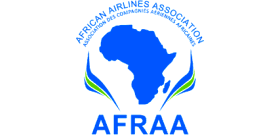 Soaring Taxes Stifle Africa's Travel Potential
Soaring Taxes Stifle Africa's Travel Potential
West and Central Africa remain the continent's most expensive regions for air travel, according to the African Airlines Association's (AFRAA) 2024 report. Average intercontinental taxes reach a staggering \$109.49 and \$106.62 per passenger, respectively. Leading the pack in excessive taxation are Gabon (\$297.70), Sierra Leone (\$294), and Nigeria (\$180), dramatically surpassing the \$68 African average.
This hefty tax burden significantly impacts regional flight costs, creating a stark contrast with Europe and the Middle East, where taxes are often less than half. While Africa accounts for a mere 2.2% of global air traffic, its passengers shoulder a disproportionate financial load, with taxes reaching up to 55% of the base fare. This pricing disparity poses a considerable challenge for African travel agents striving to offer competitive travel packages.
The AFRAA's report highlights the urgent need for tax reform in line with ICAO standards to enhance air accessibility and connectivity. These high taxes not only deter international travelers but also hinder intra-African travel, impacting regional tourism and economic growth. For travel agents, these inflated costs translate into reduced booking volumes and limit the potential for business expansion.
The excessive taxation trend contrasts sharply with global efforts to promote sustainable and accessible tourism. While international organizations like the UNWTO advocate for policies that facilitate travel and boost tourism's contribution to economic development, these high taxes create a barrier, particularly for price-sensitive travelers. This situation undermines Africa's potential to fully benefit from the global tourism resurgence.
The AFRAA emphasizes that cost-based, transparent, and justifiable charges are essential for a thriving aviation sector. The current system, where taxes often exceed the cost of services provided and are diverted to non-aviation purposes, is unsustainable. This practice not only harms airlines but also negatively impacts the entire travel ecosystem, including travel agents, hotels, and tour operators.
The call for reform aligns with broader efforts to improve Africa's aviation infrastructure and regulatory environment. Initiatives like the Single African Air Transport Market (SAATM) aim to liberalize air travel and boost connectivity within the continent. However, these efforts are undermined by excessive taxation, which discourages airlines from expanding routes and limits passenger traffic.
For African travel agents, advocating for fair and reasonable airfare taxes is crucial for business success. By supporting reforms that align with ICAO standards, travel agents can contribute to a more competitive and sustainable aviation industry. This, in turn, will lead to increased travel demand, greater business opportunities, and a stronger contribution to Africa's economic growth.
The AFRAA's report serves as a wake-up call for governments and stakeholders across the African aviation landscape. Addressing the issue of excessive taxation is not just about lowering costs; it's about unlocking Africa's vast tourism potential and creating a more vibrant and interconnected travel industry for the benefit of all.
